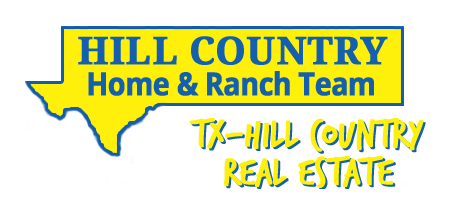Today, I had someone call and want to make an offer on one of our listings. Exactly what we’re in business for! Here’s a non-exhaustive* list of what you’ll need to give me in order to get the process going:
1. How will you take title? In other words, I need your legal name.
2. What’s your mailing address, email, phone number, and fax number? This is primarily so that the title company can send you their title commitment and all the restrictions, easements, etc. that affect the property.
3. How much is the offer and how are you going to pay for it?
This is where people who have not been working with a buyer representative sometimes are surprised and can get a little offended. What you need to keep in mind is that, from the Seller’s point of view, he/she wants to know, “Can this buyer perform?” So …
If the intent is to buy with cash, you’ll need to give me either a copy of a recent bank statement that shows that you have an account balance that is equal to your offer price or you can ask your bank to provide a letter stating the same information. Most banks are more than willing to write a letter for you.
If the intent is to finance the transaction, you’ll need to contact your bank, mortgage company, or credit union, make application, have them run a credit check, and, if you meet the lender’s criteria, they will send me a “pre-qualification letter” that I can submit with the offer. Basically, what a pre-qualification letter says is that the lender is agreeing that they will lend you the money IF you substantiate all that you have told them about your finances (and continue in the same condition through closing – e.g., don’t go out and buy a car or furniture without making sure it won’t affect your ability to purchase the property) and IF the property conforms to their standards.
4. You’ll need to be ready to issue a check for the earnest money and option fee (if applicable – see below). Earnest money typically is $500, $1000, $1500 and up … depending upon the purchase price. It’s what shows that you are an “earnest” buyer. Generally speaking, it will NOT be refunded if the deal falls through unless there are title issues. The only exception to that is if you “opt out” during the option period (again – see below) of if your financing falls through during the financing period. The Financing period is the time period within which you must supply the lender with all of your financial information and get the final “OK” from the Lender.
5. Do you want to do inspections? If so, you’ll need to purchase the right to do so. Typically the right to do so costs $10 p/day and usually lasts from 7-14 days. This 7-14 day time period is what is generally referred to as the option period. It’s called the option period because, if you find something surprising during that time, you can “opt” out and all you lose is your option money. If there are no surprises and you want to move forward, the option fee typically is applied to the purchase price. Another alternative (if there are surprises found during inspections) is to go back to the Seller and ask for concessions or repairs.
Keep in mind that there are different kinds of inspections: A general home inspection, a well inspection, a septic inspection, etc. Also, if you are buying a raw piece of land, an inspection period usually does not apply. And … if you are asking for a REALLY great deal or buying AS IS, you may gain leverage in your negotiations by not asking for an option period. For example, my husband and I have gotten some REALLY REALLY good deals because we offered cash with no option period, and close in 2 weeks. You just have to weigh what you are trying to accomplish.
6. Are there any other conditions that apply? (e.g., Sale of current home, owner financing, etc.)
7. Last but not least, when do you want the closing to be? For a property that is financed, you are looking at between 4-6 weeks. It will vary depending upon the lender’s backlog. For an all cash deal, it just depends upon whether a survey is needed or if there are inspections. Typically, 2-4 weeks.
The best part of my job is drawing up contracts. It means we are doing are job … helping people buy and sell property.
There are a lot of things that can go wrong during the “closing process.” My job is to walk you through the entire process, anticipate the problems that can occur and then resolve them.
So … Are you ready to put an offer in? Call me and we’ll get the ball rolling.
*Obviously, I am just covering contract basics here. There are a lot of other legal issues covered in the standard TAR contract. If you want more information, just ask me and we can go over it in more detail.
Here are some issues that will disqualify standard financing:
Electrical – Electrical service will need to be upgraded/fixed if wiring is exposed, outdated (below 100 amp service) or a fire hazard (cloth wiring).
Plumbing – Leaks, corrosion, outdated or inadequate plumbing systems.
HVAC – Must be able to heat and cool the house to certain temperature standards.
Lead paint and Asbestos- these materials must be disposed of properly and brought current.
Exterior issues- Roofs, windows, and siding must be in working condition and leak free. Peeling paint must be scraped and repainted.
Well and septic- Must be in working condition and conforming with safety standards.
Foundation- Slabs can not be cracked and un-level. Pier & Beam must support the structure and be level.
Unfinished areas- Missing railings, unfinished entries, exposed wiring, unfinished floors , missing insulation, drywall, etc. will not meet lending requirements.


